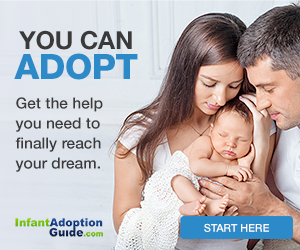The Joys and Imperfections of Transracial Adoption

Transracial Adoption can make some people uncomfortable. There are wide-ranging views on the topic: from “love is enough and you shouldn't have to worry about anything else,” to “You're not doing enough if you don't relocate and live a lifestyle in which you are the minority and the child is in the majority.” The reality of transracial adoption just isn't that straightforward. And ultimately, a child's best interests need to be kept at the forefront of any and all discussions. So, how can adoptive parents properly and realistically, prepare to adopt and raise a child of a different race? If you are considering transracial adoption, it is important to consider many of the challenges, complications, and of course the joys that will come along with it. To shed some light on the experience, we spoke with Isaac Etter, who was adopted into a white family at the age of two. He's the founder of Identity, a startup focused on using technology to help foster and adoptive parents thrive.
As a black child raised in a white family, Isaac remembers feeling different from a young age. "I didn't look like my family or anyone around me, and that was hard," he says. But despite the challenges, Isaac says that his upbringing was filled with love and support.
However, there were also some difficult moments, particularly related to race. "One of the only memories I have of a black person on TV, really, other than like Little Bill and like Fresh Prince, was when Obama became president," Isaac shares. "And I remember I have vivid memories of my parents and other people talking badly about Obama. And I really could never understand why, because you're young, you don't understand politics. I can never understand why they didn't like Obama. But what I did know was that he was the only black guy that I was seeing on the TV."
This experience highlights an important aspect of transracial adoption: the need for adoptive parents to actively engage with their child's cultural heritage. It's not enough to simply provide a loving home. Adoptive parents also need to take steps to ensure that their child feels connected to their racial and cultural identity.
"I think it's really important for adoptive parents to not only learn about their child's culture, but to actively engage in it," Isaac says. "Take them to events, introduce them to people from their culture, celebrate their heritage with them."
Isaac also notes that transracial adoption can be a difficult and emotional journey for both the adoptive parents and the child. "It's not always easy," he says. "There are times when you feel like you don't fit in anywhere, and that can be really hard."
But despite the challenges, Isaac has a positive view of his transracial adoption experience. "I feel grateful for the family I was given, and I know that they love me unconditionally," he says. "But it's also important to acknowledge that it's not always easy. There are challenges that come with transracial adoption, but with the right mindset and support, it can also be a beautiful thing."
Isaac's story highlights the importance of approaching transracial adoption with an open mind and a willingness to learn and grow. It's not a simple journey. But adoption seldom is. And for those who are committed to providing a loving and supportive home for a child, it can still be an incredibly rewarding experience.
Read Isaac's book on transracial adoption.
Transcript
About this Podcast
Join adoption consultant and host Nicole Witt in this illuminating podcast for people who are considering adoption. Get invaluable suggestions and information from respected adoption professionals and guests. If you are getting serious about adopting, you won’t want to miss a single episode of Adopting! The Podcast.


